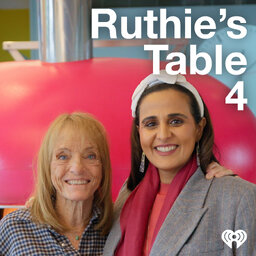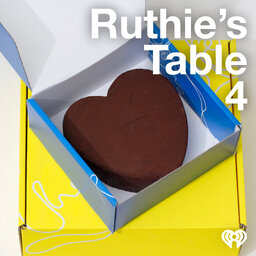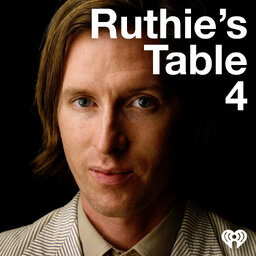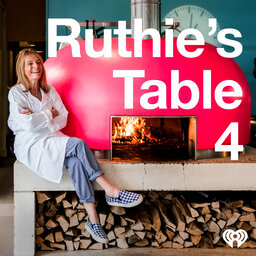Everyone knows Sienna Miller—not just as an actress and a fashion designer, but also as a brave combatant who stood up against a powerful media empire. At The River Cafe, we know her as a fabulous eater. Always here with a big table, always with children, always sharing.
On this episode of Ruthie's Table 4, I’m here with Sienna for a conversation about food, family and bravery.
Ruthie's Table 4, made in partnership with Moncler.
In 1 playlist(s)
Ruthie's Table 4
Welcome to Ruthie's Table 4 hosted by Ruthie Rogers, co-founder and chef of The River Cafe in London…Social links
Follow podcast
Recent clips

Her Excellency Sheikha Al-Mayassa bint Hamad bin Khalifa Al Thani
28:28

Bonus: Valentine's Day At The River Cafe
12:17

Wes Anderson At Gagosian, Paris
18:08
 Ruthie's Table 4
Ruthie's Table 4